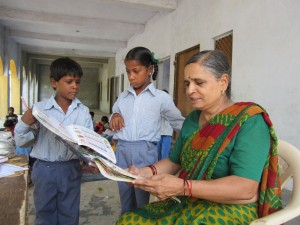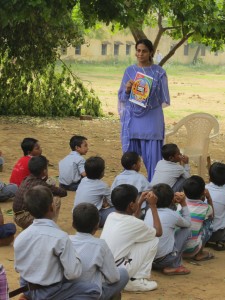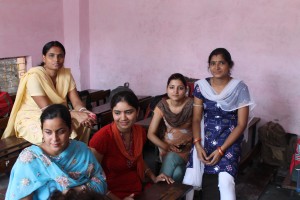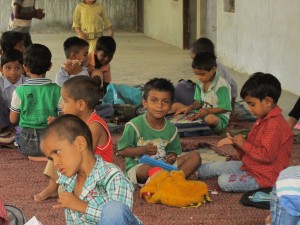In the month of September, we ran a Teaching Success Story Contest where we invited parents and teacher to share their story. Some of you participated as well. The response was encouraging and we were excited that 700+ people have so many innovative and interesting stories to share.
Out of all these, 6 stories stood out from the rest. Lets hear them.
Story One
Winner of Rs. 10,000
Anita from SBGUPS in Basai Bhopal Singh village in Neemrana district in Haryana
Word Pitara
My kids were unable to learn new words because most of their parents were illiterate so they had no help at home. I asked my students to collect English words and make a ‘pitara’. Chits of paper with words and their meaning was added by the kids in the ‘pitara’, who then shared the correct spelling and meaning of the word with the class. Every week, students would randomly pick up words from the pitara and share its meaning and spelling with the class.
Story Two
Runner-up of Rs. 1000
Pushpa from Satya Elementary School in Tena village in Jodhpur district in Rajasthan
Fun with Phonics
My students were finding it difficult to understand and recognize the sounds of different alphabets. So I made index cards for all the alphabets and rotated the cards amongst the students every week making sure each student gets to keep the card at least once a week. Then all the children were asked to call each other by using the sound (alphabet) assigned to them and not their names.
Story Three
Runner-up of Rs. 1000
Ural, a Teach For India fellow in MCD School Nigam Pratibha, in Delhi
Clay Play
Most of my Class 2 kids could not write or recognize alphabets and numbers. I started teaching Maths with a lot of activites like using matchsticks and beans to teach them multiplication and division. I also used clay to teach them measurement. Partners were given clay, asked to make two snakes. They compared lengths, which helped reinforce the concept and develope their critical thinking.
 Story Four
Story Four
Runner-up of Rs. 1000
Himanshu from Government Inter College Simalkha in Nainital District in Uttrakhand
Math Park
I started and founded a CLUB named “Innovative Maths Club”, which is helping me a lot to make maths easy. My innovation is to associate ‘Maths CLub’ activites with the activities of ‘Eco Club’. According to the theme of NCF2005 I used the open air environmental for making a joyful and practical oriented implementation of Mathematical theories like about angles and height with the help of trees and shadow.
Story Five
Runner-up of Rs. 1000
Sunita from Holy Faith Higher Secondary School in Paracity in Harda District in Madhya Pradesh
Artsy Environment
I teach Environmental science and I like to use drawing and cartoons to teach good morals and concepts. In one of my lessons, I draw identical pictures side by side and ask kids to point out 10 differences. The differences would be missing animals, birds, trees etc, things which are endangered and/or eliminated. I use this to then explain how we can make our environment better.
 Story Six
Story Six
Runner-up of Rs. 1000
Vivek from Adhunik Vidya Mandir Public School in Natli in Palampur District in Madhya Pradesh
More with Less
I have very little resources in our school and not able to get smart class from any company. So, I put a table in the class and put my monitor on that table and started showing Math and Science videos to my students. It took little effort but it helped me teach my kids. One video had animals and my kids not only learned multiplication, they also learned different animals because they discussed and asked and answered questions themselves.



